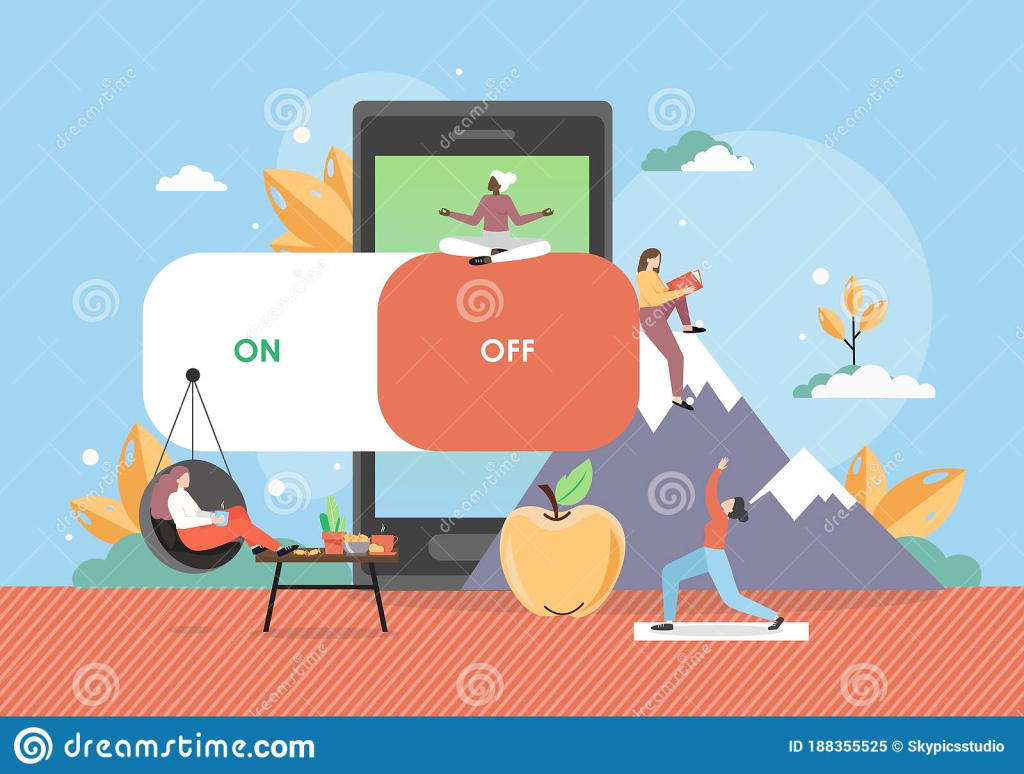Unplugging for Better Health: The Benefits of a Digital Detox
How Taking a Break from Technology Can Improve Your Mental and Physical Well-being

In today's fast-paced, technology-driven world, it's becoming increasingly difficult to unplug and disconnect from our devices. We're constantly connected to the internet, checking emails, scrolling through social media feeds, and streaming our favorite shows. But what if I told you that taking a break from technology could actually benefit your health and well-being? Here are some surprising benefits of unplugging and why you need a digital detox:
Improves Sleep Quality: The blue light emitted by screens can disrupt your sleep-wake cycle and lead to poor sleep quality. Unplugging before bed can help you fall asleep faster and improve the overall quality of your sleep.
Reduces Stress and Anxiety: Constant notifications and messages can cause stress and anxiety, leading to burnout and mental health issues. Taking a break from technology can help you reduce stress levels and improve your mental health.
Increases Productivity: Constant distractions from technology can hinder your productivity and make it difficult to focus on important tasks. Unplugging can help you stay focused and increase your productivity levels.
Enhances Relationships: Spending too much time on your devices can lead to a lack of face-to-face interaction and communication with loved ones. Unplugging can help you connect with others on a deeper level and enhance your relationships.
Boosts Creativity: Taking a break from technology can help you clear your mind and boost your creativity. Unplugging allows your brain to rest and recharge, which can lead to new ideas and perspectives.
So, how can you start a digital detox? Here are some tips:
Set boundaries: Set specific times during the day where you disconnect from your devices, such as during meals or before bed.
Turn off notifications: Disable notifications for non-essential apps to reduce distractions.
Take breaks: Take frequent breaks throughout the day to stretch, walk, or meditate without your devices.
Practice mindfulness: Engage in activities that promote mindfulness, such as yoga or journaling.
Find alternative activities: Replace screen time with other activities, such as reading, hiking, or spending time with loved ones.
Improves Physical Health: Spending too much time on our devices can lead to a sedentary lifestyle and physical health issues such as neck and back pain, eye strain, and headaches. Taking a break from technology can encourage us to be more active, go for walks, or engage in physical activities that benefit our overall health.
Increases Self-Awareness: Being constantly connected to technology can lead to a lack of self-awareness and mindfulness. By disconnecting, we can take time to reflect on our thoughts and feelings, identify areas we want to improve, and make positive changes in our lives.
Enhances Mental Clarity: The constant stream of information and notifications can overload our brains and make it difficult to focus on what's important. By unplugging, we can give our brains a chance to rest, which can lead to increased mental clarity and improved cognitive function.
Promotes Healthy Habits: Taking a digital detox can encourage us to establish healthy habits, such as getting enough sleep, eating nutritious foods, and practicing self-care. By focusing on these habits, we can improve our overall well-being and quality of life.
Reduces FOMO: Fear of missing out (FOMO) can lead us to constantly check our devices to stay updated on the latest news and trends. Unplugging can help us overcome this anxiety and live in the present moment, enjoying the people and experiences around us.
Some people may find it difficult to unplug completely, especially if their job requires them to be connected to technology. However, even small breaks from technology can have a positive impact. Here are some additional tips for taking a digital detox:
Start small: Begin by taking short breaks from technology, such as turning off your phone during meals or taking a walk without your devices.
Schedule downtime: Set aside specific times during the day or week for digital detoxing, and make it a regular part of your routine.
Find support: Connect with friends or family members who share your desire to unplug, and encourage each other to stick to your digital detox plan.
Be patient: It may take time to adjust to unplugging and form new habits. Be patient with yourself, and celebrate small victories along the way.
By taking a break from technology and unplugging, we can improve our physical and mental health, enhance our relationships, and live a more mindful and fulfilling life.
In conclusion, unplugging from technology can have a positive impact on your mental and physical health, relationships, and productivity. By taking small steps towards a digital detox, you can reap the benefits and improve your overall well-being.
About the Creator
Areeba Arshad
Passionate writer creating informative, engaging content with a unique perspective. Inspiring positive change through personal essays, articles, and guides.






Comments
There are no comments for this story
Be the first to respond and start the conversation.